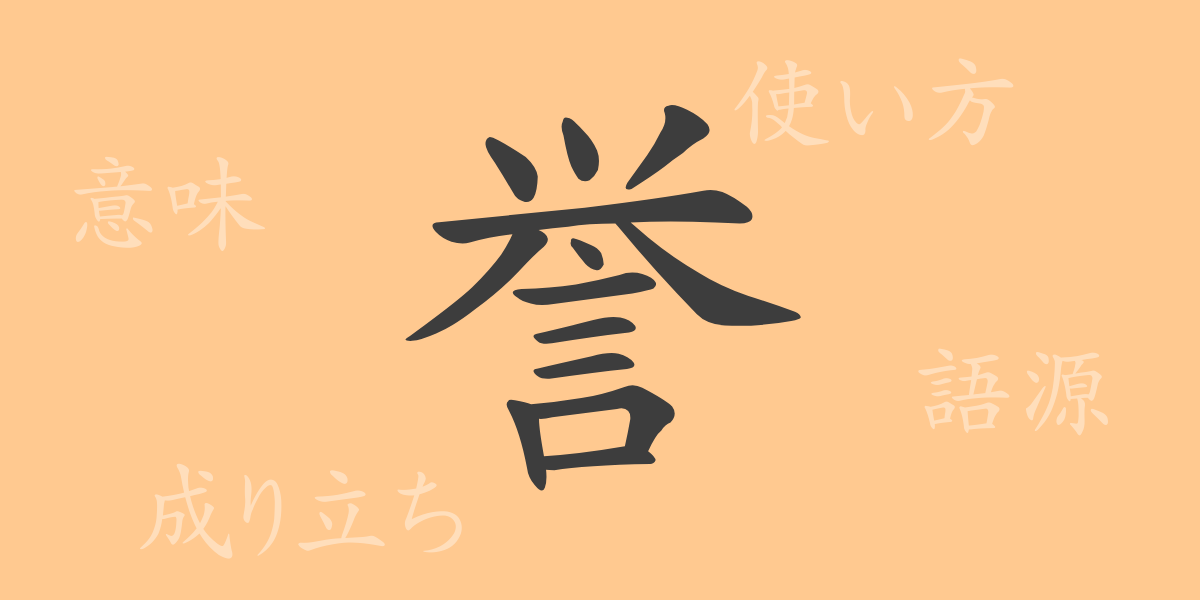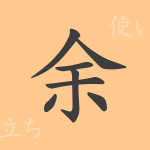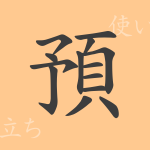In Japanese culture, words are valued not just as a means of communication but as symbols of spirituality and tradition. Among these, the 常用漢字 (Jouyou Kanji) “誉” (yo) represents a significant concept that celebrates human dignity and achievements. In this article, we will delve into the origins, modern usage, readings, stroke count, and radicals of “誉” (yo). By exploring idioms, expressions, and proverbs that use this character, we will uncover the unique beauty and profound meaning it holds within the Japanese language.
Origins of 誉 (yo)
The kanji “誉” (yo) has its roots in ancient China. The character combines “言” (speech) and “寿” (longevity/happiness), symbolizing the beautiful meaning of “bringing happiness through good words.” In Japan, this kanji has been used since ancient times to signify honor and glory, and it has been highly valued as a word representing human dignity and achievements.
Meaning and Usage of 誉 (yo)
“誉” (yo) signifies honor and glory, meaning that a person or thing is highly evaluated and praised by society. Specifically, it is often used to recognize a person’s achievements or character and is also used as an expression of praise. Additionally, this kanji is used to indicate generally good qualities or states.
Readings, Stroke Count, and Radicals of 誉 (yo)
The kanji “誉” (yo) has multiple readings in Japanese:
- Readings: In 音読み (On’yomi), it is read as “ヨ” (yo), and in 訓読み (Kun’yomi), it is read as “ほま.る” (homaru) or “ほ.める” (homeru).
- Stroke Count: The kanji “誉” (yo) has a total of 13 strokes.
- Radical: Its radical is “言” (speech), which classifies it among characters related to words.
Idioms, Expressions, and Proverbs Using 誉 (yo) and Their Meanings
There are numerous idioms, expressions, and proverbs that include “誉” (yo), each showcasing the rich expressiveness of the Japanese language.
- 名誉退職 (meiyo taishoku): Voluntarily retiring from a position, often including cases where it is actually at the company’s suggestion.
- 誉れ高い (homare takai): Having high honor, indicating a person or thing highly esteemed by society.
- 誉め言葉 (home kotoba): Words of praise that commend someone, expressing admiration.
Summary of 誉 (yo)
The kanji “誉” (yo) has played an important role in conveying the meanings of honor and praise in the Japanese language from its origins to the present day. Understanding its readings, stroke count, and radicals allows for a deeper appreciation of the character’s meaning and background. Idioms and expressions containing “誉” (yo) reflect the richness of Japanese culture and language, making learning them highly valuable for deepening one’s understanding of Japanese.

























